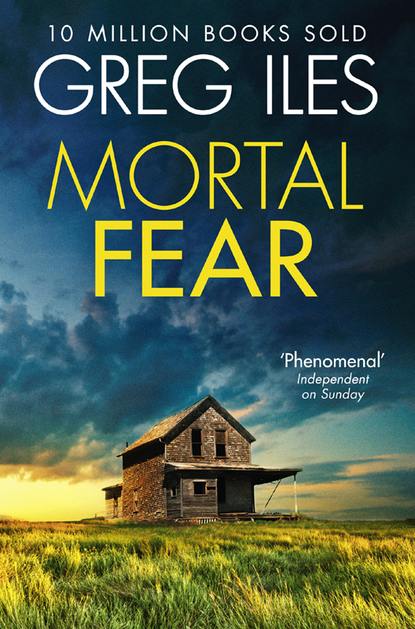По всем вопросам обращайтесь на: info@litportal.ru
(©) 2003-2024.
✖
Mortal Fear
Автор
Год написания книги
2018
Настройки чтения
Размер шрифта
Высота строк
Поля
This time I forced Kali to be careful to get no blood on her feet. After she finished and I had collected my specimen, we retired to the shower. Genuine marble. We wear rubber caps to keep as many hairs as possible out of the drain trap. The blood slipped off our shaved skin and swirled on the white stone. At last I could allow myself release.
Self-control is so important.
Kali knelt before me in the hot spray. I had held back so long that neither her expertise nor her diligence were required. She swallowed every drop of evidence, as she must. She may have left traces of her own arousal, but what will the police make of that? They will be confused enough as it is.
As we stole out of the estate, carrying not only the briefcase but also the rubber bag, now filled, I recalled the patient. So much potential there. For my work. For public relations. All lost, and for what? More homogenate? But I must not dwell on failure. Great souls rejoice in adversity.
Tomorrow is another day.
ONE (#ulink_78e02a50-499c-575b-ada6-b765f4706301)
Life is simple.
The more complicated you believe yours is, the less you know of your true condition.
For a long time I did not understand this.
Now I do.
You are hungry or you are full. You are healthy or you are sick. You are faithful to your wife or you are not. You are alive or you are dead.
I am alive.
We complain about complexity, about moral shades of gray, but we take refuge in these things. Complexity offers refuge from choice, and thus from action. In most situations, most of us would prefer to do nothing.
Sic transit gloria mundi.
Something is wrong.
I stare at the phone number of the New Orleans police department, which I have just taken down from directory assistance.
I have known something is wrong for some time, at some level, but it took what happened today to make me face it squarely. To override the opposition.
“I have information about the Karin Wheat murder,” I say when the call goes through.
“I’ll connect you to Homicide,” says a female voice.
I glance up from my desk to the small color television I keep tuned to CNN sixteen hours a day. They’re into the International Hour. It was CNN that brought me news of the murder.
“Detective Mozingo,” says a male voice.
“I have information relevant to the Karin Wheat case.”
“What’s your name?”
“Harper Cole.”
“Address?”
“I’m calling from Rain, Mississippi.”
A pause. “Where?”
“It’s a farming area in the Delta.”
“How do you know anything about the Wheat case? The body was just discovered six hours ago.”
“I saw it on CNN. They cut into a regular newscast to show Wheat’s estate. I guess she was more famous than I thought.”
I hear the detective sigh and mutter something that sounds like “… freakin’ high profile …” away from the phone.
“Are you working on that case?” I ask him.
“No, thank God. Mayeux’s got it. But I’ll take the information. What do you think you know?”
“I think I know how she was killed.”
“We know how she was killed, sir.”
Nowadays I don’t trust anyone who calls me sir. “I’m sorry. I mean how the killer got to her. How he chose her.”
Another silence. A suspicious one.
“It’s sort of complicated,” I tell him. “I work as a sysop—I’m sorry, a system operator—for an online computer service. Are you familiar with what that is?”
“Not really,” the detective says warily.
“You’ve heard of America Online? CompuServe?”
“Yeah. The Internet, right?”
“Close enough. The online service I work for is called EROS. It deals exclusively with sex.”
“You mean like phone sex?”
Jesus. “Maybe I should wait and talk to Detective—Mayeux, was it?
“Yeah. He’s still at the scene, though. Just give me what you’ve got and …”
Mozingo is still talking, but I am no longer listening. I am staring astonished into the face of a man that the CNN caption line identifies as NOPD detective Michael Mayeux. His shirt drenched with sweat, he stands beside the tall black wrought-iron gate of the mansion that belonged to Karin Wheat. I recognize it from the earlier broadcast. The sidewalk before the gate is cordoned off with bright yellow police tapes, but against the tapes stand at least a hundred people ranging in age from fifteen to fifty. More women than men.
Fans.
Detective Mayeux looks irritably at a black female reporter and says, “I can’t comment on that at this time.” He is a tanned man of medium height, in his early forties, maybe ten pounds overweight. The reporter thrusts the mike into his face.
“What about the reports that Ms Wheat’s body was sexually mutilated?”
Mayeux looks pained. “I can categorically deny that, Charvel,” he says, seeming to brighten as disappointment flickers in her eyes.











